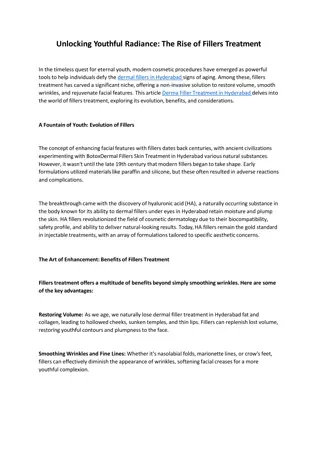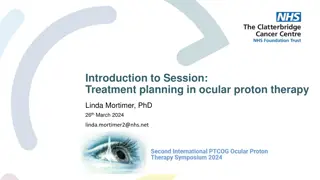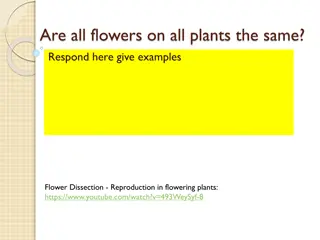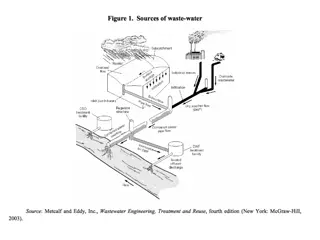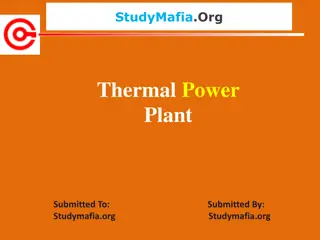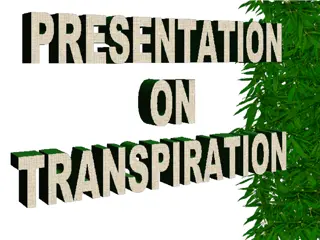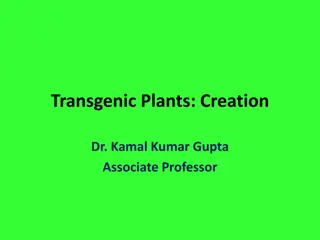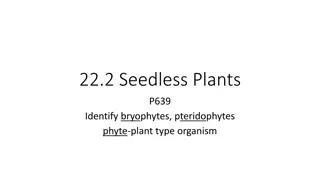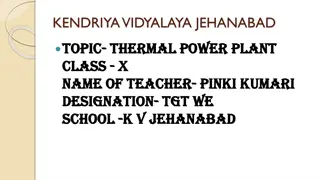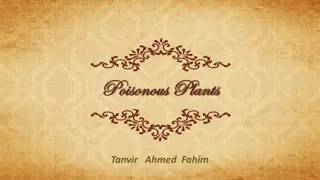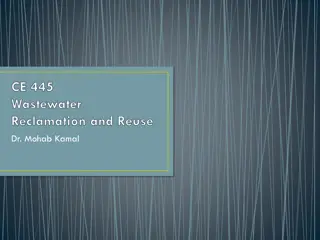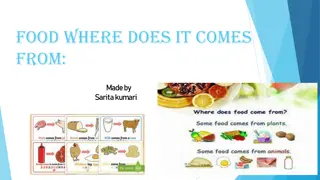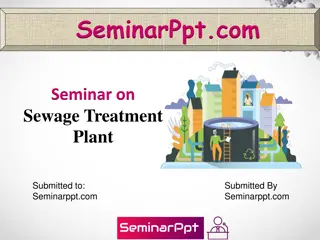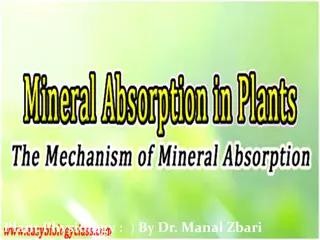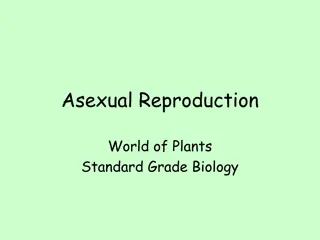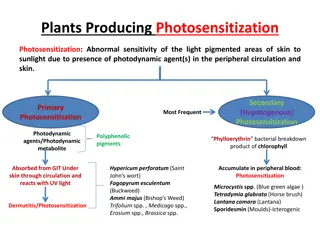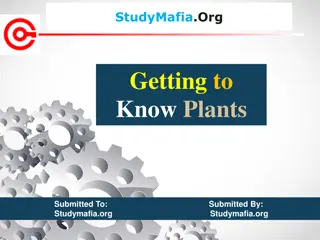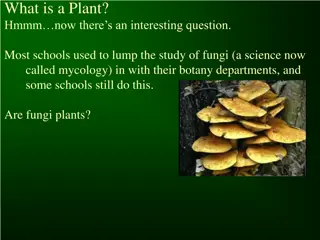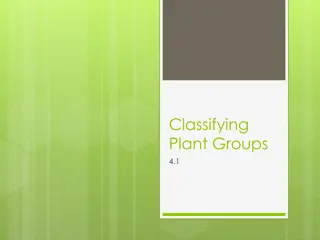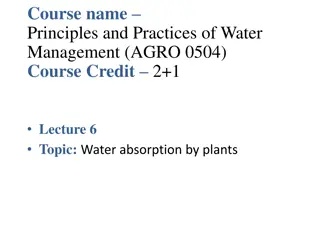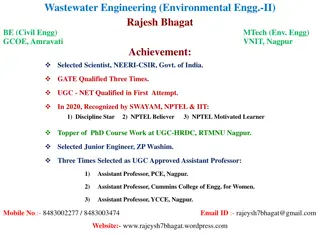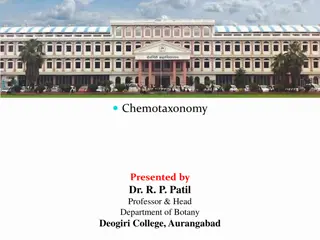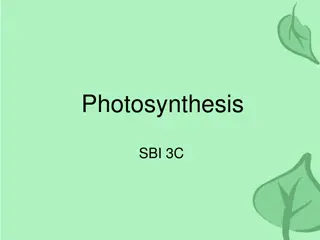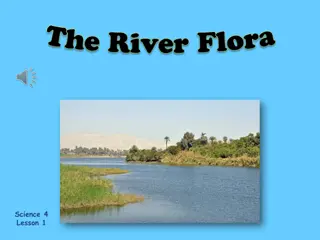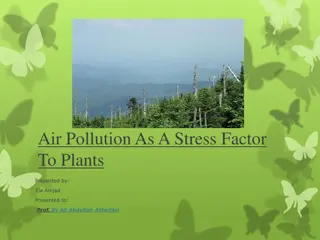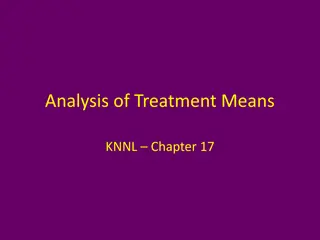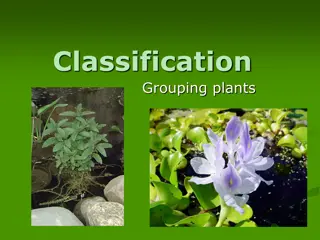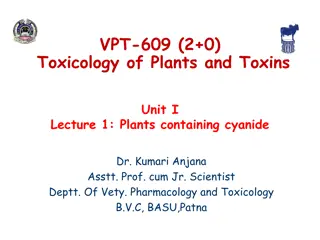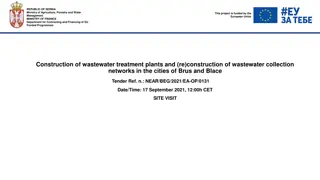Opioid Use Disorder Treatment Guidelines 2024
The February 2024 NYSDOH AIDS Institute Clinical Guidelines Program focuses on assisting clinicians in engaging with patients about opioid use disorder (OUD) treatment goals, emphasizing overdose prevention, providing updated information on available treatment options, and offering recommendations f
2 views • 24 slides
Treatment Supporter Scheme for Tuberculosis Preventive Treatment Beneficiaries
Treatment Supporter Scheme provides assistance to TPT beneficiaries in completing their treatment. Treatment Supporters can be various individuals including Medical Officers, MPWs, and community volunteers. Their role involves educating beneficiaries about TPT treatment, ensuring medication adherenc
1 views • 21 slides
Energy Production
Explore different aspects of energy production and efficiency in thermal power plants, water heaters, coal-fired electrical generation plants, and natural gas electrical generation plants. Learn about energy density, mass calculations, overall efficiencies, and specific energy requirements in these
7 views • 57 slides
Dermal Filler Treatment | Fillers Treatment in Jubilee Hills, Hyderabad
We offer best skin care treatment in jubilee hills, hyderabad. specialized in fillers treatment, injectible fillers treatment, we have top class dermatologist for dermal fillers treatment
0 views • 2 slides
Advances in Ocular Proton Therapy Treatment Planning
Explore the intricate world of ocular proton therapy treatment planning with Dr. Linda Mortimer, PhD. Discover the fundamental elements of an ocular treatment plan, main goals of treatment planning, an overview of dedicated ocular Treatment Planning Systems (TPS), planning workflows, choice of TPS,
2 views • 12 slides
Understanding Flower Variations in Plants
Explore the diverse world of flowers in plants through examples and explanations of their reproductive parts and processes. Discover how some plants have both male and female flowers, while others have separate sex flowers. Learn about perfect flowers, the female and male parts of a flower, and the
0 views • 12 slides
Understanding Wastewater Treatment: Importance and Process
Wastewater, a byproduct of various water uses, must be treated to remove pollutants and protect the environment and public health. Wastewater treatment plants play a crucial role in cleaning water from home, commercial, and industrial sources through primary, secondary, and tertiary stages, resultin
1 views • 37 slides
Abattoir Effluent Treatment: Understanding and Managing Waste Water in Meat Processing Plants
Effluents in abattoirs contain a variety of pollutants, including fats, oils, greases, chemicals, and organic matter. Direct discharge of untreated effluents can harm water bodies by depleting oxygen levels and disturbing pH balance. Terminologies like BOD and COD help measure the quality of wastewa
0 views • 13 slides
Understanding Thermal Power Plants: Overview and Operation
Thermal power plants play a crucial role in converting heat energy into electricity for various applications. This article covers the definition, layout, working principle, and components of thermal power plants, highlighting their advantages and top features. From converting heat into mechanical po
0 views • 20 slides
Understanding Transpiration and Gas Exchange in Plants
Transpiration is the evaporation of water from plants, mainly occurring through the leaves' stomata. Plants exchange gases like CO2 and O2 through various parts, without specialized organs. The process aids in photosynthesis, respiration, and cooling, demonstrating the importance of transpiration in
0 views • 22 slides
Understanding Transgenic Plants and Agrobacterium Tumefaciens in Plant Biotechnology
Creation of transgenic plants involves various methods such as microprojectile DNA-coating, electroporation, and Agrobacterium transformation. Agrobacterium tumefaciens, a soil bacterium, plays a crucial role in inducing crown gall disease in plants by transferring T-DNA from the Ti plasmid. The Ti
1 views • 27 slides
Understanding Seedless Plants: Bryophytes and Pteridophytes
Explore the world of seedless plants through bryophytes and pteridophytes. Learn about the characteristics of green algae, the life cycles of these plants, and how vascular tissue impacts their growth. Discover the limitations and importance of vascular tissue in plants, from the small yet significa
0 views • 8 slides
Advanced Treatment Processes for Faecal Sludge Management
Treatment processes for faecal sludge management involve various stages including preliminary treatment, primary treatment, secondary treatment, and tertiary treatment. Each stage employs mechanical, biological, and chemical processes to separate, decompose, and remove contaminants from the sludge,
0 views • 7 slides
Understanding Thermal Power Plants in India
Explore the significance of thermal power plants in India, focusing on their generation capacity, coal-based operations, and key players like NTPC. Learn about the principles, layouts, waste management, and power output of these plants. Dive into a list of major thermal power plants across the count
0 views • 21 slides
Understanding Poisonous Plants and Their Effects on Humans
Poisonous plants can have deleterious effects on individuals, leading to severe consequences and even death if not managed properly. These plants produce toxins that interfere with the body's essential functions, ultimately causing impairment and potential fatality. Recognizing the grades of poisoni
0 views • 11 slides
Aquatic Treatment Systems for Wastewater Reclamation and Reuse
In aquatic systems, wastewater treatment involves bacterial metabolism and sedimentation, with aquatic plants playing a role in improving treatment capabilities. This article discusses the functions of aquatic plants in treatment systems and the categories of wetlands used for wastewater treatment,
1 views • 15 slides
Understanding Food Sources: Plants and Animals Explained
Food is essential for nourishing our bodies, and it comes from either plants or animals. Plants provide fruits, vegetables, grains, and more, while animals offer products like meat, milk, and eggs. Different parts of plants, such as roots, stems, and leaves, are consumed as food. Animals have varied
0 views • 11 slides
Comprehensive Overview of Sewage Treatment Plant Processes and Energy Generation
This seminar presentation dives deep into the world of sewage treatment plants, covering definitions, introduction, STP treatment stages (including primary, secondary, and tertiary treatments), energy generation through microbial fuel cells, and biogas generation. It emphasizes the importance of tre
0 views • 15 slides
Understanding Sewage Treatment Systems and Septic Tanks
Sewage treatment is the process of removing contaminants from wastewater and sewage, involving physical, chemical, and biological processes. Sewage is mainly liquid waste generated by humans, comprising washing water, urine, feces, and more. It can be treated in septic tanks or municipal treatment p
0 views • 19 slides
Benchmark Process in Chemical and Biological Engineering Research Group
The benchmark process conducted by the Maravelias Research Group in Chemical and Biological Engineering focuses on wastewater treatment efficiency and performance metrics. The process includes various stages such as secondary treatment, preliminary treatment, primary treatment, disinfection, and bio
0 views • 7 slides
Mineral Absorption in Plants: Mechanisms and Types
Plants absorb minerals from the soil as ions through the roots, with the process of mineral absorption being distinct from water absorption. Mineral absorption in plants can occur through passive or active methods, each involving different mechanisms and energy requirements. Passive absorption is a
0 views • 14 slides
Asexual Reproduction in Plants: Methods and Examples
Asexual reproduction in plants, also known as vegetative propagation, involves various methods such as tubers, bulbs, and runners. It allows plants to reproduce without the involvement of sex cells and fertilization, resulting in genetically identical offspring. Artificial propagation techniques lik
0 views • 11 slides
Understanding Photosensitization in Plants: Causes and Toxicity
Photosensitization in plants can lead to abnormal skin sensitivity to sunlight, caused by the presence of photodynamic agents in the skin and peripheral circulation. Primary and secondary photosensitization are common, with various plants and toxins contributing to liver damage and biliary occlusion
0 views • 12 slides
Exploring the World of Plants: An Overview
Plants play a vital role in sustaining life on Earth by producing food and oxygen. This comprehensive guide delves into the diverse types of plants, such as herbs, shrubs, trees, creepers, and climbers. It also discusses the essential components of plants, like leaves, transpiration, and photosynthe
0 views • 20 slides
A Closer Look at Plants and Their Importance in Our Ecosystem
Plants play a vital role in our ecosystem, not only through photosynthesis but also in regulating atmospheric gases like oxygen and carbon dioxide. Understanding the definition of plants, from green algae to flowering plants, is essential. By studying plants, we uncover their critical contribution t
0 views • 12 slides
Understanding Plant Classification and Characteristics
Discover the classification of plants based on their structures and characteristics, including vascular vs. nonvascular plants, seed plants vs. seedless plants, and the definitions of angiosperms, gymnosperms, dicots, and monocots. Learn about the history of plant classification and how plants are g
0 views • 27 slides
Monitoring Thyroid Function After Head and Neck Cancer Treatment
This collection of images and data discusses the importance of monitoring thyroid function after head and neck cancer treatment, specifically focusing on post-treatment thyroid function tests, audits of practices in head and neck units, thyroid function post laryngectomy, and the significance of det
0 views • 11 slides
Water Absorption by Plants: Mechanisms and Adaptation Strategies
Understanding water absorption by plants is crucial for effective water management in agriculture. Plants absorb water through active and passive methods, driven by osmotic and non-osmotic processes. Root hairs play a significant role in facilitating water uptake, with mechanisms such as osmotic act
0 views • 26 slides
Beware of Pests and Diseases on Plants - Protect Your Home Garden
Pests and diseases can easily hide on plants, seeds, fruits, vegetables, and flowers, posing a threat to your home garden. Bringing infected plants home can lead to widespread infestations and damage. It's crucial to be vigilant and avoid importing potentially contaminated greenery. Stay informed, i
0 views • 4 slides
Comprehensive Overview of Wastewater Treatment Systems and Processes
This detailed profile showcases Rajesh Bhagat's extensive academic and professional achievements in environmental engineering, focusing on wastewater treatment. It covers various treatment processes such as secondary treatment, sludge digestion, preliminary treatment, and primary treatment. Referenc
0 views • 53 slides
Understanding Chemotaxonomy: Classification of Plants Based on Chemical Constituents
Chemotaxonomy, presented by Dr. R. P. Patil, explores the scientific investigation of the chemical characters in plants for taxonomy and phylogeny studies. It involves classifying plants based on their chemical constituents and molecular characteristics. Principles, methods, and importance of chemot
0 views • 24 slides
Understanding Photosynthesis: The Process of Energy Conversion in Plants
Photosynthesis is a vital process where plants, algae, and cyanobacteria convert light energy from the sun into chemical energy in the form of glucose. This energy conversion involves the absorption of light by chlorophyll molecules in chloroplasts, leading to the generation of ATP and the formation
0 views • 12 slides
Diversity of Plants in Rivers and Streams
In rivers and streams, a variety of plants play essential roles by providing shelter, food, and oxygen to animals. From white poplar to water lilies, different plants thrive along riverbanks and in water bodies, contributing to the ecosystem's health and balance. Aquatic plants like water lettuce an
0 views • 6 slides
Understanding Air Pollution Stress on Plants
The impact of air pollution on plants is a significant concern, affecting their physiology and overall health. Various air pollutants, such as sulfur dioxide, ozone, and nitrogen compounds, have been identified as phytotoxic agents, leading to severe or subtle effects on plant life. Detecting the ef
0 views • 21 slides
Statistical Analysis of Treatment Means in Experimental Studies
The content discusses various statistical methods to analyze treatment means in experimental studies, including KNNL models, main effects plots, inference for individual treatment means, comparing two treatment means, and contrasts among treatment means. It covers topics such as parameter estimation
0 views • 25 slides
Plant Classification and Reproduction Overview
Plants are categorized into four groups: Mosses, Ferns, Conifers, and Flowering Plants. Mosses reproduce by spores and lack roots or xylem vessels. Ferns reproduce via spores, while conifers reproduce with seeds found in cones and have needle-shaped leaves. Flowering plants reproduce using seeds fou
0 views • 8 slides
Understanding Cyanogenic Plants and Cyanide Poisoning in Animals
This lecture introduces the toxicology of plants containing cyanide, focusing on factors affecting cyanide poisoning, cyanogenic plants, mechanisms of toxicosis, clinical signs, post-mortem lesions, diagnosis, treatment, and prevention. It discusses species variations in susceptibility, plant growth
0 views • 22 slides
Understanding Opioid Treatment Programs and Medication-Assisted Treatment
Opioid Treatment Programs (OTPs) and Medication-Assisted Treatment (MAT) integrate behavioral therapy with medications for substance use disorders like opioid dependency. Combining medications with counseling offers a holistic approach to help individuals reduce or stop opioid use. The summary cover
0 views • 41 slides
Understanding Monocot Plants: Features and Families
Monocotyledon plants, a significant group of flowering plants, have unique characteristics such as adventitious roots, parallel-veined leaves, and flowers with parts in sets of three or four. The Poaceae family, including economically important grasses, and the Cyperaceae family, known as sedges, ar
0 views • 7 slides
Construction of Wastewater Treatment Plants in Serbia - EU Funded Project
This project in the Republic of Serbia, funded by the European Union, involves the construction and reconstruction of wastewater treatment plants and collection networks in the cities of Brus and Blace. The procurement process is an international open tender following PRAG rules. The Ministry of Agr
0 views • 7 slides



